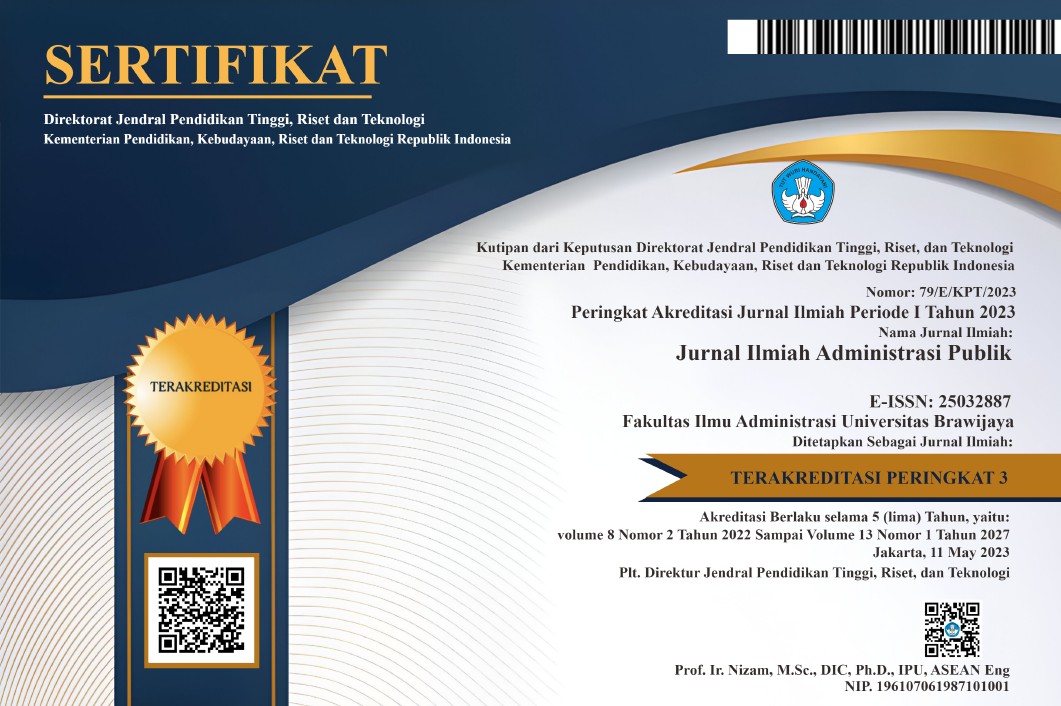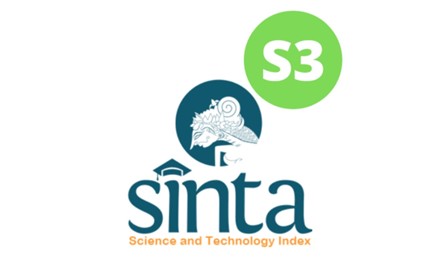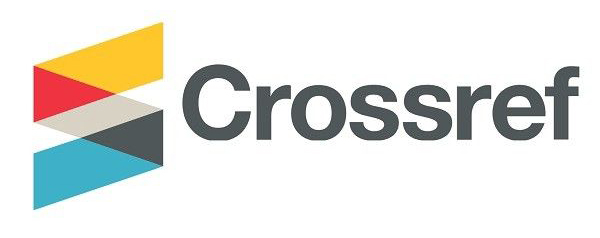Perilaku Pemilih dalam Menentukan Keputusan Politik di Indonesia pada Awal Era Reformasi
DOI:
https://doi.org/10.21776/ub.jiap.2021.007.03.4Keywords:
voters, reformationAbstract
This study aims to analyze voters' behavior in the presidential election in Indonesia. To achieve this goal, researchers limited the period only to the reform period. This is because at this time the political freedom of the people in choosing the president was very protected compared to the previous era. Voter behavior is identified from the political decisions of voters in determining the president and vice president. There are 3 main approaches used to analyze voter behavior, namely sociological, psychological, and rational choices. This research was conducted by using qualitative descriptive method with data collection techniques through observation and documentation. Because researchers are also voters, researchers are the main instrument of this research. The results showed that sociological and psychological factors greatly influenced voter behavior in determining political choices. Emotional voters towards leaders and parties form their attachment to candidates and political parties who ultimately determine their political decisions. In addition, similarities in ethnicity, religion, and regionalism also provide emotional voters in determining their political decisions.
References
Arianto, B. (2011). Perbandingan Penyelenggaraan Pemilihan Umum Legislatif Era Reformasi di Indonesia. Jurnal FISIP UMRAH, 2 (2)
Ferguson, J. (1996). The Anti-Politics Machine: Development, Depolitization, and Bureaucratic Power in Lesotho. London: University of Minnesota Press
Gaffar, A. (1992). Javanese Voters: A case Study of Election Under a Hegemonis Party System. Yogyakarta: Gajah Mada University Press.
Hambali, M.A. (2014). Pemilukada Pasca Reformasi di Indonesia. RECHSTAAT Ilmu Hukum Fakultas Hukum UNSA 8 (1), 1-7.
Ibrahim. (2009). Pokok-Pokok Pengantar Ilmu Politik. Bandung: CV. Mandar Maju
Kurniasih & Rohmawati. (2013). Pelaksanaan Fungsi Komunikasi Politik Partai Demokrat (Studi Pemilihan Walikota Bandung). Jakarta: Majalah Ilmiah UNIKOM
Miles, B. & Huberman, M. (1992). Analisa Data Kualitatif. Jakarta: UI Press
Moleong, L. J. (2000). Metode Penelitian. Bandung: Rosda Karya.
________. (2006). Metode Penelitian Kualitatif. Bandung: PT. Remaja Rosdakarya
Mujani, S., Liddle, W. R., & Ambardi, K. (2012). Kuasa Rakyat: Analisis Tentang Perilaku Pemilih dalam Pemilihan Legislatid dan Presiden Indonesia Pasca Orde Baru. Jakarta: Mizan Publika
Nimmo, D. (2005). Komunikasi Politik: Komunikator, Pesan, dan Media. Bandung: Remajaposdakarya
Nursal, A. (2004). Political Marketing: Strategi Memenangkan Pemilu. Jakarta: Gramedia Pustaka Utama
Rachbini, Didik J. (2002). Ekonomi Politik: Paradigma dan Teori Pilihan Publik. Jakarta: Ghalia Indonesia
Subakti, Ramlan. (2010). Memahami Ilmu Politik. Jakarta: Grasindo
Yustiningrum, E., & Ichwanuddin, W. (2015). Partisipasi Politik dan Perilaku Pemilih pada Pemilu 2014. Jurnal Penelitian Politik, 12 (1), 117 – 135.
Downloads
Published
Issue
Section
License
Copyright (c) 2021 Jurnal Ilmiah Administrasi Publik

This work is licensed under a Creative Commons Attribution-NonCommercial 4.0 International License.
If your paper is accepted, the author identified as the formal corresponding author for the paper will receive an email prompting them to login into Author Services; where via the JIAP Author Licensing Service they will be able to complete the license agreement on behalf of all authors on the paper.














